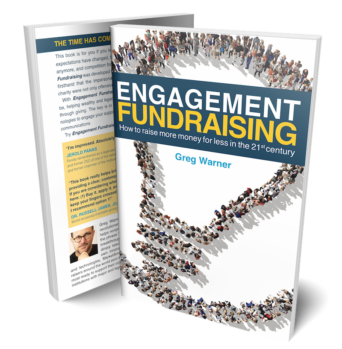We use cookies to ensure that we give you the best experience on our website. By continuing to use this site, you agree to our use of cookies in accordance with our Privacy Policy.
 Login
Login
Your Role
Challenges You Face
results
Learn
Resources
Company
The Unmeasurable Impact of Human Connection in Advancement


The most important part of advancement is something we can’t measure.
It’s the problem with all fundraising systems and process charts. They depict human decision-making moving from phase to phase or over a series of progressive “moves.” Systems and processes are important, and we should seek to ensure that all interactions with donors are purposeful and progressive but the operative word in the phrase “human decision-making” is “human.”
Conscientious, caring advancement practitioners don’t just take donors through a process, they attend to human needs in many ways, just of few of which are offered below. They understand that when they seek to secure someone’s financial support, they are bringing someone into their community. The see each donor, current or prospective, as a whole person.
Donors, as we are coming to understand more fully, engage in philanthropy to discover themselves. They seek meaning and community. The best advancement officers facilitate that journey and seek to strengthen donors’ sense of belonging. They demonstrate through their personal caring that donors are not just ATMs but valued in their own right. They understand that even the wealthiest of donors are very human inside.
I remember listening to the advancement officers who had worked with Joan Kroc, who left billions to her favorite causes. They all told of receiving late-night or even middle-of-the-night calls from her many times. She had billions but all those dollars did not allay her human wants and needs.
While there is the occasional powerful donor who attempts to exert undue influence on an organization, the most seasoned advancement officers know there are many, many more donors who have learned the limitations of wealth, including a kind of isolation it imposes, and seek to be a part of a more caring community.
They find much of that caring in those that bring them into the community and continue to check in on them, stand by them, and be there for them long after they have given. They create an incredibly important web of human services made up of personal considerations that has far more to do with sustained fundraising success than any measurable step, phase, system or move.
What Matters in Advancement That Can’t Be Measured
- Giving an extra, unplanned hour to an elderly donor who needs some company
- Sitting shiva
- Attending funerals of donors and their loved ones
- Learning about your donor’s faith so you can understand the values that animate their giving
- Helping a donor cut through your organization’s red tape
- Expressing condolences when donors lose loved ones
- Explaining to a donor what your president meant to say or why he didn’t seem to know who they were
- Helping a donor’s relative interested in a career in advancement
- Talking a donor out of resigning from your board
- Recognizing donors for good deeds that were of no direct benefit to your organization
- Treating donors with the same regard and respect when they suffer financial setbacks
Jim Langley is the president of Langley Innovations. Langley Innovations provides a range of services to its clients to help them understand the cultural underpinnings of philanthropy and the psychology of donors and, with that knowledge, to develop the most effective strategies and tactics to build broader and more lasting communities of support. Jim has authored numerous books including his most recent book, The Future of Fundraising: Adapting to New Philanthropic Realities, published by Academic Impressions in 2020.
Related Resources:
- Webinar: 4-Step Process for “Reimagining Fundraising Operations”
- How to help your donors score a victory and make an impact
- Why you must deliver value in fundraising, not just take the money and run
- 9 ways to be a more human fundraiser
LIKE THIS BLOG POST? LEAVE YOUR COMMENTS BELOW AND/OR SHARE IT WITH YOUR PEERS!
Get smarter with the SmartIdeas blog
Subscribe to our blog today and get actionable fundraising ideas delivered straight to your inbox!
